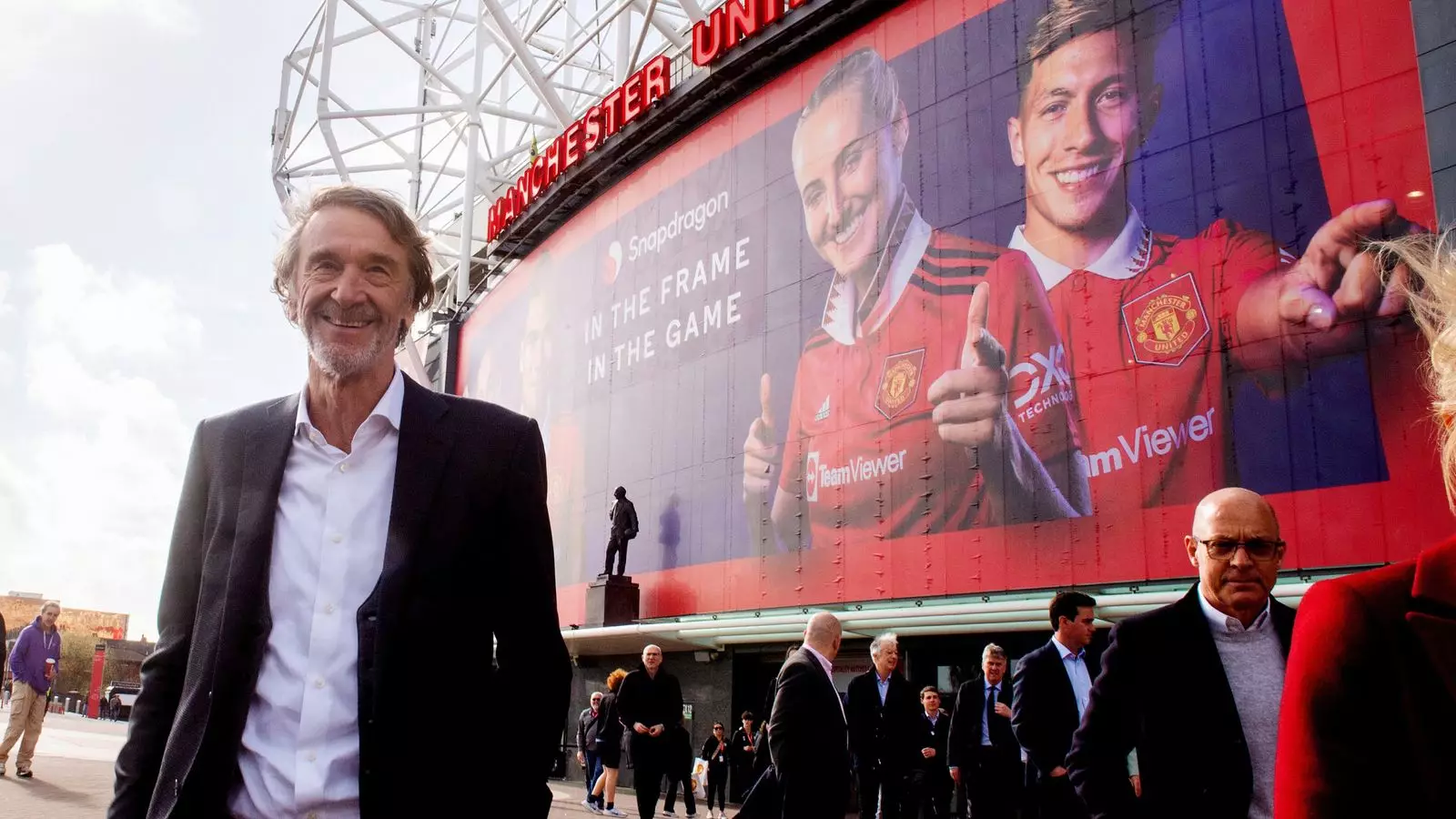Manchester United Football Club is set to make a significant announcement on Sunday regarding the sale of a 25% stake to billionaire petrochemicals tycoon Sir Jim Ratcliffe. This news comes after months of talks and negotiations, finally reaching a conclusion. The deal is expected to bring an end to the Glazer family’s control over the club, as Sir Jim takes control of the footballing affairs. The Premier League’s approval is the final step in this process, which is estimated to take between six and eight weeks.
Under the deal, Sir Jim Ratcliffe’s Ineos Sport will acquire the 25% stake for $33-a-share. Additionally, he will invest $300 million into the club’s infrastructure, further solidifying his ownership. The Glazer family will also sell 25% of their B-shares, which hold greater voting rights, to Sir Jim. This move is expected to provide a much-needed injection of investment, as many United fans feel that the club has suffered from a lack of funds under the Glazers’ ownership.
The sale of this stake to Sir Jim Ratcliffe presents a new chapter for Manchester United. With his substantial financial backing, the club has the potential to revitalize its infrastructural development and compete with the elite football clubs worldwide. The current state of United’s home, Old Trafford, may require more than £245 million to truly become a world-class stadium again. However, the billionaire has confirmed that the financing will be separate from the club’s existing borrowings, ensuring stability and a fresh start.
While many see this as a positive development, there are concerns about Sir Jim Ratcliffe’s minority stake and the continued presence of the Glazers at Old Trafford. Some United fans have expressed their unease with this arrangement, as they were hoping for a complete change in ownership. It remains to be seen whether Sir Jim will ultimately seek overall control of the club, and what his long-term plans for Manchester United entail.
The Glazer family’s tenure at Manchester United has been marred by controversy and protests. Since their takeover in 2005, the club has faced backlash and anger from fans for its debt-ridden nature and lack of success on the pitch. The absence of a Premier League title since Sir Alex Ferguson’s retirement in 2013 has only fueled the frustration among supporters. Additionally, the Glazers’ involvement in the ill-fated European Super League project in 2021 further intensified the desire for new owners.
Future Prospects
With the sale of a stake to Sir Jim Ratcliffe, Manchester United enters a period of transition and potential growth. The billionaire’s investment and involvement in the club could unlock new opportunities and commercial possibilities. The Glazers justified their high valuation of the club by emphasizing the potential for increased control over lucrative broadcast rights and the global commercial exploitation of the Manchester United brand.
The Strategic Review
Last November, the Glazer family launched a strategic review of the club, acknowledging the importance of the fans and their passion. This review aimed to explore all options to ensure the best possible future for Manchester United. The sale of the stake to Sir Jim Ratcliffe is the result of this review and demonstrates the Glazers’ commitment to maximizing growth opportunities for the club.
As the sale of the stake to Sir Jim Ratcliffe is confirmed, Manchester United embarks on a new era. The billionaire’s investment and potential influence on the club’s direction bring both excitement and apprehension for fans. Only time will tell how this new ownership structure will shape the future of one of football’s most iconic and beloved teams.


Leave a Reply